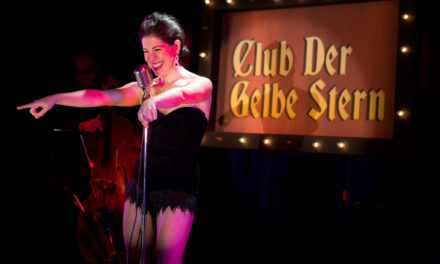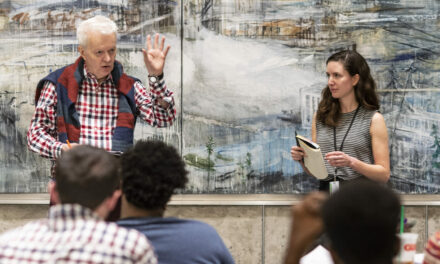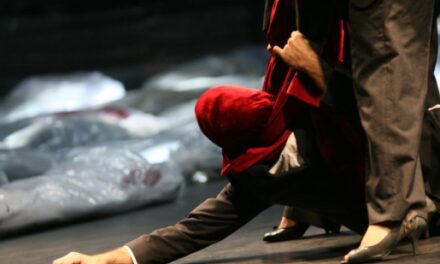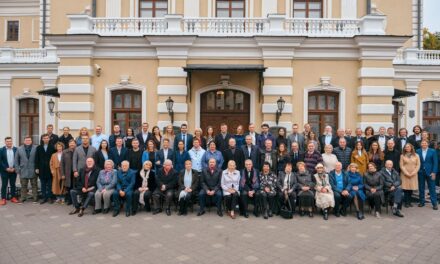The Jeune Théâtre Européen Jeunes Publics (Young European Theatre for Young Audiences) (JTEJP) project was a 2022-23 pilot experience of designing, creating, and performing prototypes of multilingual shows for young and family audiences. It was funded by Creative Europe – European Cooperation Projects. Initiated by French organizations – Espace des Arts, Scène nationale Chalon-sur-Saône, Jeune Théâtre National, and Instant Mix – it brought together seven beneficiaries: Espace des Arts, Scène nationale Chalon-sur-Saône (France), ArtFraction (Serbia), Art Veda (Tunisia), Jeune Théâtre National (France), University of Galway (Ireland), Pedio Texnis (Greece), Staastheater Mainz (Germany). It also included five associated partners: Compagnie l’Instant même (France), Pistë (France-Finland), Milos International Festival (Greece), Galway Theatre Festival (Ireland), Branar Drámaíochta teo (Ireland). These partners covered a wide spectrum, from small grass-root emerging organizations to well-structured, state-funded entities with high operational capacity.
JTEP brought together emerging theatre artists supported by and/or co-working with trainers and senior experts; producers and programmers who represent a variety of professional and linguistic contexts; groups of amateur practitioners and/or young spectators and all types of audiences directly involved at different stages of the project’s development. Seven mobilities and transnational meetings happened in Serbia, France, Germany, Ireland, Tunisia, and Greece, in addition to several Zoom meetings. Each mobility involved local artists and communities, and most featured workshops on different aspects of multilingual theatre, either for the artists or for the young. Four multilingual work-in-progresses propositions were presented to diverse audiences ranging from 8-year-olds to young adults.
Having multilingual perspectives in the room – all situated in different theatre systems and socio-political-economic contexts – allowed for multiple-perspective discussions on the creative development of the works that the artists were rehearsing as part of the JTEP, which also raised the broader questions of equality theatre-making in Europe. From these multilingual debates came also recommendations for possible changes related to equality within the Creative Europe scheme related to travelling, taxation, Creative Europe’s desk support, and daily diets.
- Travelling is not the same for all artists and for some it involves costly visas, stress, as well as the need to constantly prove they have a right to visit the EU. This creates working contexts in which not all artists working on a project have equal rights. Moreover, it creates an impression that Creative Europe – despite prioritising some countries – does not support their access to the CE projects. Some solution could be a simplified and free application for the CE artists or a Creative Europe visa for the duration of the project. Other artists at other projects have also raised this.
- In some countries in Europe, actors work as freelancers; in others, they have full-time employment or are being paid allowances by governments. These different circumstances create different pressure points:
- Freelancers need to give up paid work to participate in CE projects, which, depending on their country, may be better paid than CE projects.
- Not all countries recognise artists’ self-employment, meaning that freelancers cannot invoice organizations in certain countries and are charged high taxes.
- A solution could be a European taxation system for CE’s funded projects or CE’s desks’ support to work around these taxation differences to ensure everyone is paid equally.
- At the moment, Creative Europe’s desks support (or not) individual elements of CE projects within their specific country. A collaborative support across all desks (relevant to a specific project) within each project could support funded projects in visas, figuring out details of different taxation systems, and organizing mobilities. Above all, this would allow Creative Europe for a better and more involved learning about differences across cultural sectors, and ways of working with these differences.
- Daily diets do not go the same way in every country, which is particularly an issue for those travelling from poorer to more expensive countries. Relating the rates to the cost of living in individual countries may be a solution.
- Clear guidelines of what support the project can expect from individual CE desks would help to manage expectations.
- When projects include a lot of small companies that do not have the administrative structure sufficient for this project (primarily due to a lack of means), artists end up doing administrative work. Creative desks in individual countries could help here. For example, the coordinating organization could transfer the money to the specific national CE desks, which would transfer it to the artists or the company in accordance with the law in force in each country.
The Jeune Théâtre Européen Jeunes Publics (Young European Theatre for Young Audiences) (JTEJP) project was funded by Creative Europe – European Cooperation Projects.

This post was written by the author in their personal capacity.The opinions expressed in this article are the author’s own and do not reflect the view of The Theatre Times, their staff or collaborators.
This post was written by Jeune Théâtre Européen Jeunes Publics.
The views expressed here belong to the author and do not necessarily reflect our views and opinions.


















